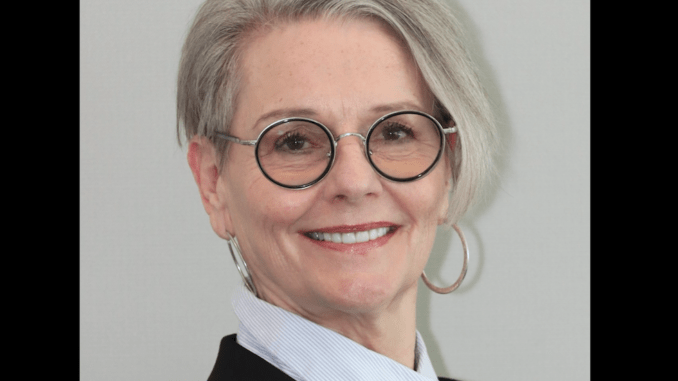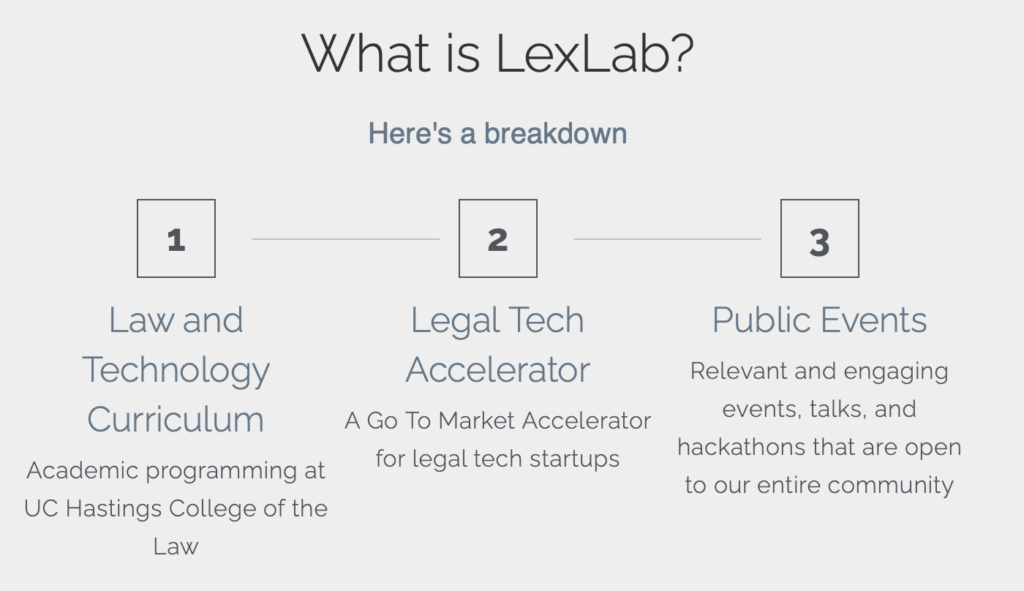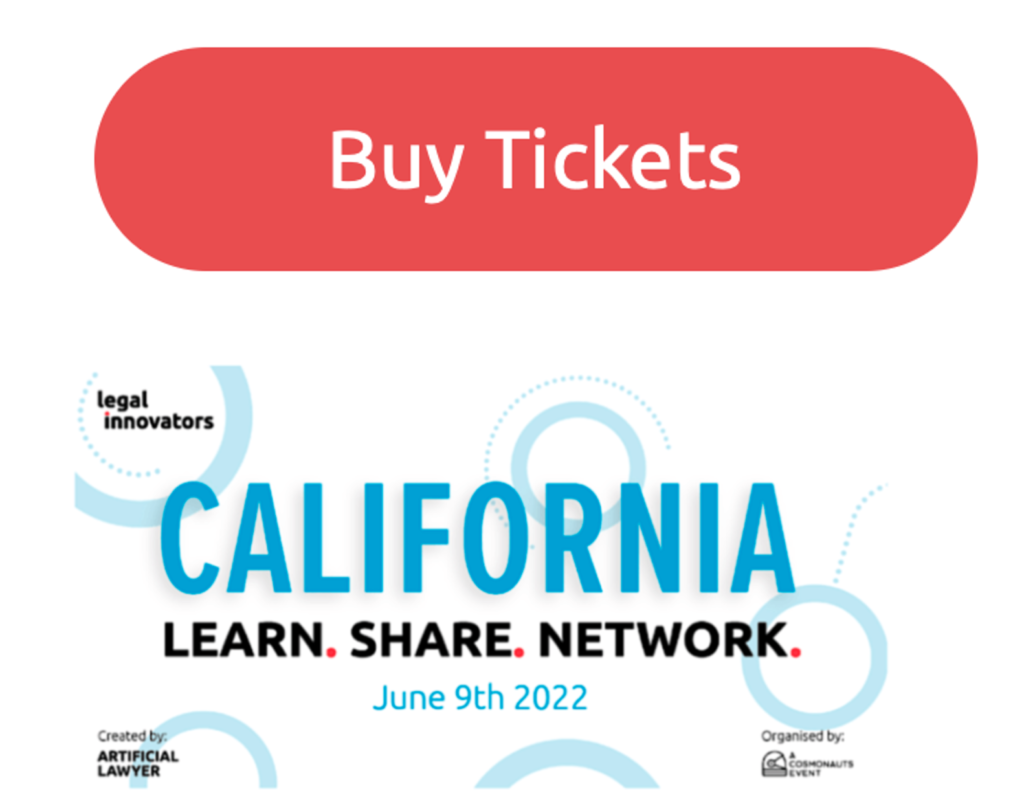
How do you help law students to really get to grips with legal tech and the changing profession? One solution is to host your own accelerator along with providing associated courses on legal technology, which is exactly what Alice Armitage, Chief Executive Professor at LexLab, at the University of California Hastings College of Law, is doing.
Armitage told Artificial Lawyer: ‘My belief is that law students need to hear from people on the ground about technology. With LexLab we have been able to get so many people to guest speak, on legal ops and legal informatics, and more. It’s been amazingly successful.’
But why an accelerator? Why bring young legal tech companies into the university? And in this case, LexLab has now had five cohorts of three to five companies each time, which engage with the law faculty and also provide a demo day.
‘There is a lot of interaction [with the companies] and many of the students will become lawyers in San Francisco, and some of them will advise startups. So this helps them to understand how they work,’ Armitage explained.

She added that she also teaches a course on how to build a legal tech startup; founders are invited to come to classes; and some of the law students become interns at the companies as well. In short, there is a deep level of engagement that has a genuinely practical output: helping lawyers who may become advisers to tech companies to understand a lot more about the business realities of startups – while also getting a better grasp of legal tech. So, a double-benefit.
And on the point about advising startups, that makes a lot of sense. San Francisco – and the wider Silicon Valley and adjoining area – remain key centres for startups. Plenty of young lawyers become advisers to this world and several of the most well-known law firms on the West Coast made their names from growing hand-in-hand with a mass of startups that began in garages and ended up as global giants.
Also, what better way to appreciate what is happening in legal tech than to actually spend time with startups while you are still studying the law? You get a feel for the challenges they face, and the problems they are trying to solve.
And for the startups? As Armitage noted, UC Hastings has been producing lawyers on the West Coast for a very long time. Its professional network is massive – and that can only help with introductions for the startups, or to find a mentor.
In fact they’ve just completed their most recent demo day for the fifth cohort. These included:
- Justice Text, a video evidence management platform used by public defenders and criminal defense attorneys, won the grand prize of $5,000.
- Case Yak, which uses artificial intelligence to predict the value of personal injury claims, received the second-place prize of $1,000
- Graphletter, which helps companies meet their data protection and privacy requirements through automated legal reasoning and a collaborative compliance workspace. Graphletter was founded by UC Hastings alum Peter Boaz ’15.
- Inkly has built an intelligent contract negotiation platform with attorneys available on- demand. Inkly was co-founded by UC Hastings alum Victor Wang ’15.
- Legal Karma is the first easy drag and drop tool to automate any contract.
The pitches were judged by a panel of legal tech evangelists and investors, which included Pieter Gunst, co- founder of Legal.io, Olga Mack, CEO of Parley Pro (which is now part of LexisNexis), and Kunoor Chopra, co-founder of Elevate Services
Legal Education Is Like The Taxi Industry…Before Uber
This site then talked with Armitage more broadly about legal education. She is someone that certainly believes there will be, and should be, change.
‘Legal education is like the taxi industry before Uber – it’s ripe to be disrupted,’ she said and noted that UC Hastings was unusual in that it provided courses on things like legal tech and ‘only a handful of law schools do that’.
She stressed that as legal tech advanced and clients became more aware of what was possible, so too the world for junior lawyers and the way they worked would change.
Armitage stressed that law schools should be preparing students for this changing environment so that they are ‘more equipped’.
She also noted that there are also a lot more opportunities in the legal world than just taking on a traditional role at a law firm.
‘Legal ops has created another career path,’ she concluded.
Overall, UC Hastings is a good example of a law school that is actively seeking to move with the times and clearly does not believe that just ‘teaching the law’ on its own is sufficient for all that pass through its doors.
Can every school run a legal tech accelerator? Probably not all law schools can do this. But, they can all invite legal tech experts to speak to the students. They can all create classes that cover the business of law, legal tech, legal data, legal ops and other career paths.
The people and the information are out there, the law schools just have to choose whether they want to provide this to the many young people who pay so much money to get into the world of law – a world that is now rapidly changing.
—
Legal Innovators California – Conference – San Francisco – June 9
Come along to Legal Innovators California, where Alice and many other experts in the field will be speaking.
Details: Thursday, June 9, at Bespoke at Westfield, 845 Market Street, Suite 450, San Francisco. The conference will run all day, with panels, fireside chats, and presentations. There also will be plenty of time to network and to meet the many exhibitors.
Come along to learn, share and network at Legal Innovators California on June 9 in San Francisco.
For tickets please see here.
